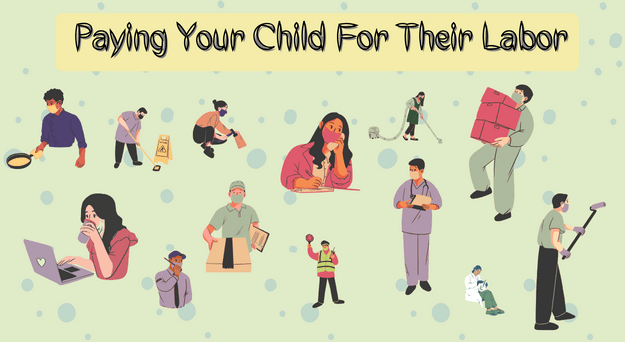Leveraging the often overlooked strategy of compensating your children for their work in the family business can be a highly effective tax-saving technique for small business owners. Regardless of their age, ensuring that your children are officially paid for their contributions not only helps minimize their tax liability but also unlocks additional ancillary benefits. It’s a strategy that, when executed correctly on the books and tax returns, proves to be a valuable asset. However, it’s crucial to handle the process diligently to avoid potential audit risks and complications that may arise if not managed properly.
The Non-Tax Reasons
Beyond tax advantages, involving your children in the family business brings forth non-tax-related benefits. In an era where traditional family farms are dwindling, instilling a work ethic, money management skills, and entrepreneurial concepts in your children becomes increasingly vital. By integrating them into the business, you have the opportunity to impart crucial lessons about financial success and business ownership, fostering a strong foundation for their future. Additionally, in a challenging labor market, tapping into your household for reliable and cost-effective assistance can be a strategic advantage, offering more flexible control over schedules compared to external hires. Moreover, contributing to your children’s retirement accounts at any age presents a unique opportunity, whether kickstarting a Roth IRA for a young child or assisting a 30-something in initiating a 401k, emphasizing the importance of starting to save sooner rather than later.
Paying Kids Under Age 18
Paying your children under the age of 18 provides a dual tax advantage that shouldn’t be underestimated. Firstly, when compensating children in this age bracket, there’s no requirement to withhold income taxes or payroll taxes, including the infamous FICA (Federal Insurance Contributions Act). This exemption extends to Workers Compensation in most states, with exceptions like Washington. The rationale is based on the assumption that your children won’t sue you if injured on the job, considering factors like health insurance coverage. Secondly, individuals in the U.S., including children, are not taxed on the first $12,550 of income in 2021, thanks to the increase in the Standard Deduction outlined in the Tax Cuts and Jobs Act (TCJA). Notably, the “Kiddie Tax” doesn’t apply to earned income, allowing you to claim your children as dependents and benefit from the child tax credit, all while ensuring they don’t pay taxes on their initial $12,550 in earned income. Steering clear of the “Kiddie Tax” is a straightforward strategy with significant financial benefits.
Ensuring your children genuinely earn their income is paramount to the success of this tax-saving strategy. To qualify for a tax deduction in your business, it’s crucial to pay your children a legitimate wage for actual work and services rendered to the business, be it operational or rental in nature. This legitimate involvement is essential, and maintaining meticulous records of their time worked is equally important. Paying your children for mere “family chores” won’t qualify as a valid deduction and may invite an audit (see U.S. v. Renfrow, 104 AFTR 2d 2009-5497, 1/26/2009).
The proper procedure involves leveraging IRS regulations that allow sole proprietorships or partnerships (LLCs) wholly owned by a child’s parents to pay wages to children under age 18 without withholding payroll taxes. These wages can be categorized as “outside labor” to further benefit from an additional expense deduction. Notably, there’s no need to issue a W-2, as there are no withholdings, and the penalty for not filing a W-2 is contingent on withholdings. The absence of withholdings means no penalty, making the W-2 perfunctory. While the IRS doesn’t mandate a W-2 in this scenario, it’s advisable if your child plans to contribute to a Roth IRA, ensuring a seamless match between their IRA contribution and earned income for IRS record-keeping. Although not mandatory, this practice keeps the IRS computer system aligned and potentially contributes to a smoother tax process.
Paying Your Kids 18 or Older
This strategy holds significant weight, especially when supporting an adult child while involving them in your business operations. In such a scenario, you essentially have two viable options: treat them as an employee, subject to W-2 procedures alongside other staff, or designate them as a subcontractor, necessitating the issuance of a proper Form 1099-NEC. Adhering to both federal and state regulations concerning the classification of employees and contractors is crucial. Attempting to categorize them incorrectly, such as labeling them a subcontractor when they function, resemble, and operate like an employee, can lead to potential employment audits. It’s imperative to exercise caution and compliance to avoid pitfalls. For more in-depth insights into when and how to issue the 1099-NEC, refer to my article “1099 Rules for Business Owners.”
Over the years, I’ve observed and personally employed three effective strategies for involving adult children in a family business. These working relationships offer versatility and valuable contributions:
- Marketing Consulting and Service Provider: Engage your adult children as off-site marketing consultants or service providers. This role may involve occasional support in marketing or management, handling day-to-day social media activities, or providing graphic design services. This flexible approach allows them to contribute to the business’s success while accommodating their skills and availability.
- Board Membership: Another common and impactful strategy is to have adult children serve on the Board of Directors in a corporation or the Board of Advisors in an LLC. This not only offers crucial support to business owners but also serves as an educational tool, providing insights into the intricacies of the business. For more detailed guidance on setting up a Board of Directors or Advisors, refer to my article “Setting up Your Board of Directors or Advisors.”
- Property Managers for Rental Properties: Assigning your children the role of property managers for rental properties, especially in the area where they reside, is another effective strategy. This can even extend to properties they live in, such as while attending college. Managing rental properties provides practical experience and responsibilities, fostering a sense of ownership and financial acumen.
Each of these approaches caters to different aspects of the business, allowing adult children to contribute based on their skills and interests while gaining valuable insights into entrepreneurship and business management.








Leave A Comment